|
The Cornerstone Academy Trust is a Department for Education selected EdTech Demonstrator with a local, national and international reputation for innovative use of technology in education. As well as the extensive range of DfE fully funded support packages it offers, it runs an annual EdTech Festival, designed to inspire educators to integrate technology into their practice, and in turn enhance opportunities and outcomes for young people. This year’s event, Back to Reality – a Vision for the New Normal, took place at the end of March and focused on the continuing role of EdTech in the post-pandemic reality, and was attended live by almost 400 people, plus many more on catch-up. The Festival provided an opportunity to hear from industry experts and high profile speakers, including representatives from Microsoft Education, Discovery Education, Babcock, ClickView, 2Simple, FlipGrid, and Literacy Planet in a total of 74 sessions, just a few of which are highlighted here.  The event was officially opened by Bridie Tooher, Deputy Director of Digital Strategy for the DfE, who delivered DfE’s Digital Strategy for Education and its inclusion within the first Schools White Paper in six years. She began by reviewing where schools are on the digital journey, and how the pandemic has moved the use of EdTech forward very significantly, not only in the classroom but with CPD, interactions with parents and more. She emphasised the need for schools to plan a strategy for taking advantage of the opportunities that technology presents. Bridie summarised the key points that the Secretary of State for Education has made about EdTech in the new White Paper. The first strand is to get the physical infrastructure right and ensure that it works. Extra money is going into providing broadband for all schools by 2025, and the DfE is currently publishing standards for technology for all schools to work to. Tech is not seen as standalone, but embedded as a tool into everything schools do, to support teachers and cut workload. The second strand is around data transparency, and the third around evidence-informed education – proving that tech makes a difference. “It’s never tech for tech’s sake, but it’s how tech can be that enabler, and how it can support. The ultimate goal is raising standards for all our children; but actually if we know there are certain types of tech and ways of working that free up teachers, and they can spend more time face-to-face in class, evidence will help to address the challenges.” When Bridie was asked why the EdTech demo programme will shortly be stopped when it’s been so successful, she said: “With the launch of standards, there’s a framework out there regarding tech. We’ll be asking what support schools need; now’s the opportunity for us to see what comes next in terms of capability building. We’ve got this period of engagement as part of launching standards and look forward to hearing from and talking to the sector about what you need. We are evaluating the ‘new normal’ to see what the support looks like – share your feedback with us.” Fiona Aubrey-Smith, a former teacher, school leader and advisor who is now Director of One Life Learning, presented From EdTech to PedTech: Shifting the Narrative Around Education Technology. Her message was that tech is more than a useful tool; it is a powerful mechanism for enabling different forms of effective communication. Fiona discussed the pedagogy of the use of technology; the how rather than the what of using EdTech. “What you believe about teaching and learning and about knowledge and schooling makes the greatest impact on the experiences of colleagues and your students in front of you… your beliefs will shape their thinking and their lives through the very choices you are making about their learning.” 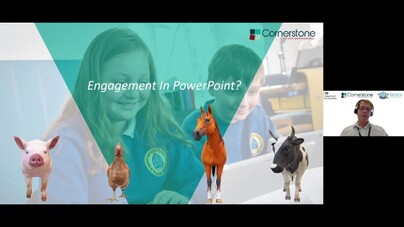 Michael Kimber is a Professional Development Lead, teacher, Microsoft Certified Educator, Microsoft Innovative Educator Expert and STEM Learning Science Learning Partnership Lead for Devon at Cornerstone Academy Trust. His presentation, Top Apps to Improve Engagement, detailed the best apps to use in the classroom to keep pupils engaged. “To improve engagement, learning should be relevant, personalised, and collaborative.” Michael encouraged everyone to innovate, try new things and pay attention to what’s new and detailed some of the apps he loves to use in the classroom, including Flipgrid, PowerPoint, Microsoft Forms, ClickView, Immersive Reader, Sli.do and Kahoot! “Technology is an accelerator. This can be a good and a bad thing – it can accelerate great or poor practice, and it can accelerate engagement or lack of engagement. It’s about the teacher, using it strategically and in the context of your class to make a difference to learners.” 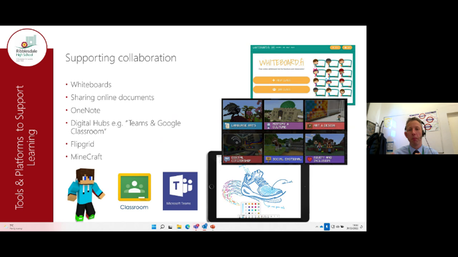 Paul Edge, Deputy Head Teacher at Ribblesdale High School offered his insights into Accessible Technology to Support Teaching and Learning. He alluded to the enormous amount of change in technology we have seen over the past 100 years, while the classroom still looks fairly similar. However, he emphasised that what young people are experiencing in social media today, compared with only 20 years ago, means that sometimes we lose sight of how young people use technology and what they expect from their teachers. “We need to consider how our young people actually utilise the tech on a daily basis and how we can use those skills that they have to support them from that inclusive curriculum perspective.” Attendees showed a lot of interest in presentations by representatives of some of the suppliers offering digital resources and platforms to schools. Literacy Planet’s Dave Weston presented How Digital Resources Can Help Develop Literacy in an Early Years and KS1 setting. He explained that 65,000 students across the UK use Literacy Planet every week, and that a PWC report highlighted its use for 30 minutes a week was shown to improve literacy outcomes. “Literacy Planet is an engaging tool that can support literacy learning, particularly phonics. Our aim is not only to help students improve their literacy levels, but also allow them to have fun while doing so.” 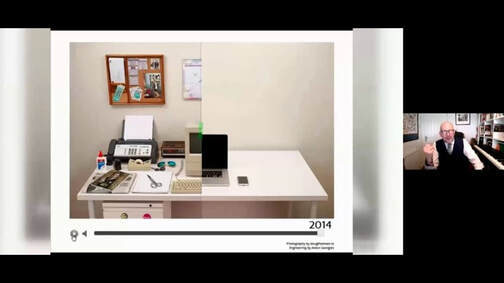 Andrew Tidswell is Director of Professional Development and Partner Learning for Discovery Education and a former teacher. His presentation provided a deep dive into how digital technologies such as video, imagery, audio and digital text can be used to transform teaching and enrich learning across the curriculum. He also noted how much technology has advanced in education, particularly over the past 30 years, and pointed out that we have to prepare students for changes in a fast-moving, shrinking world: “85% of the jobs which will exist in 2030 haven’t even been invented yet!” Andrew explained that at Discovery Education they consider STEM a culture, not a class – it’s about a collaborative approach to learning between teachers and students. Discussing the preparation of students for their future employment, he highlighted an Economist report that concluded: “Problem-solving was the most in-demand workplace skill, followed by collaboration, communication, critical thinking and creativity.” 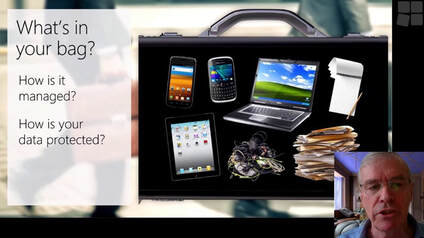 Steve Beswick, Surface Business Development Director at Microsoft Education, was a keynote speaker at the festival. He works for Microsoft’s worldwide education team, developing the Surface for Microsoft in education. His discussion of Surface in Education provided the context in which skills need to be developed in the classroom. "It’s not just about what we teach, but how we teach,” and described how the technology of the Surface is there to empower teachers, engage students, optimise operations and transform learning, pointing out that the workplace is changing and, for both teachers and the future workforce. “Modern work requires modern devices.” Steve gave a number of reasons why the device you choose for your school is important, including potential cost savings, learning outcomes, deployment and management, security, integration with cloud technology and environmental sustainability as well as the features of the product itself. Jon Coles, CEO of United Learning, delivery partner for the EdTech Demonstrator Programme on behalf of the DfE, was another keynote speaker. As the Programme comes to an end, his advice to schools as they write their own strategies included the consideration of more flexible working arrangements for staff, accessing curriculum and catch-up lessons on the programme website and the willingness to try different things now that technology is available to support education. He urged people to ensure that they access the free advice and support for EdTech during the one remaining term it's available. The key messages that attendees took away from the four days of presentations were:
You can still watch all the presentations free-of-charge here:
0 Comments
Your comment will be posted after it is approved.
Leave a Reply. |
SWIFT News
|
SPONSORED BY
Join us, be a part of our SWIFT community |
© COPYRIGHT 2022 SOUTH WEST INSTITUTE FOR TEACHING SWIFT. ALL RIGHTS RESERVED | Website by brightblueC
VIEW OUR PRIVACY NOTICES | VIEW OUR COURSE T&CS
VIEW OUR PRIVACY NOTICES | VIEW OUR COURSE T&CS


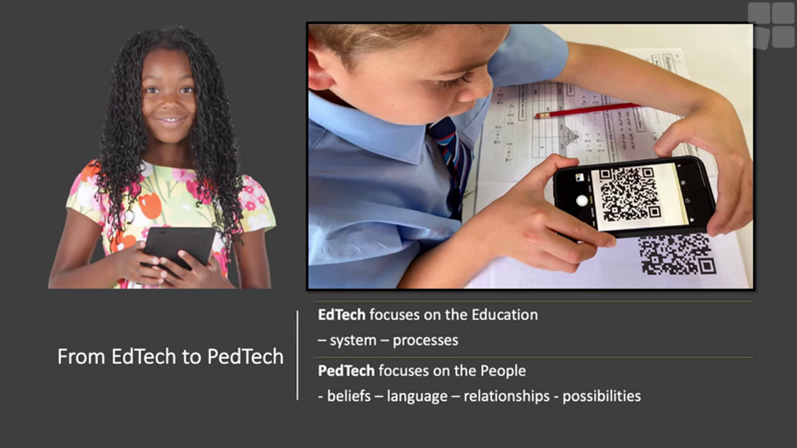
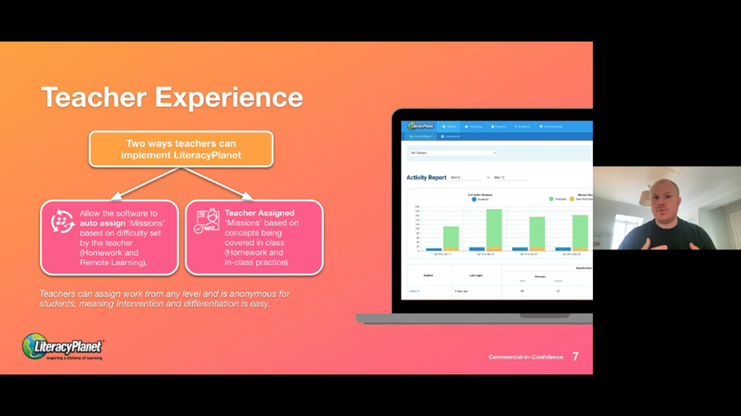

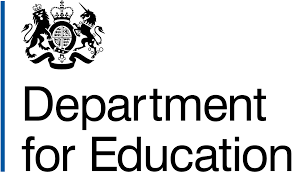

 RSS Feed
RSS Feed





